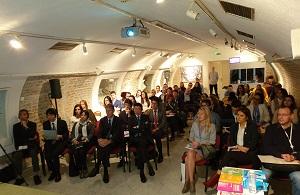 In cooperation with the Japan Fair Trade Commission, the Commission for Protection of Competition organized seminars for students enrolled in undergraduate, master, and doctoral academic studies in universities in Belgrade, Novi Sad, and Niš.
In cooperation with the Japan Fair Trade Commission, the Commission for Protection of Competition organized seminars for students enrolled in undergraduate, master, and doctoral academic studies in universities in Belgrade, Novi Sad, and Niš.
The keynote addresses during the first seminar are given by H.E. Junichi Maruyama, Ambassador of Japan to the Republic of Serbia, and Slobodan Vuksanović, Director of the Museum of Pedagogy, followed by expert presentations provided by Gordana Bulatović, Head of the Division for Competition Advocacy and International Affairs, Nina Vasić, Senior Advisor at the Division for Competition Advocacy and International Affairs, Takujiro Kono, Head of the Strategic Planning Division, JFTC, and Atsushi Nakahata, Head of the International Affairs Division, JFTC.
 The academics were given an opportunity to learn about fundamental principles of competition policy, in addition to a number of concrete examples drawn from the practice illustrating the fight against cartels and other forms of anti-competitive behaviors.
The academics were given an opportunity to learn about fundamental principles of competition policy, in addition to a number of concrete examples drawn from the practice illustrating the fight against cartels and other forms of anti-competitive behaviors.
By organizing such seminars, the Commission for Protection of Competition wishes to reaffirm the interest and commitment of students for competition policy in their scholarly works and to provide support to academics in pursuing their future professional careers in antitrust.
The seminars are held at the Museum of Pedagogy in Belgrade, and Novi Sad and Niš University Rectorates.
The Embassy of Japan in Belgrade and the Japan International Cooperation Agency provided support towards organizing the seminars.
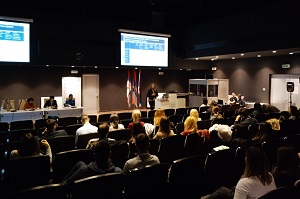
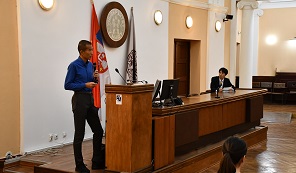
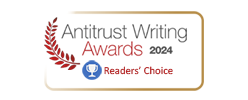


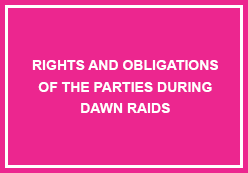
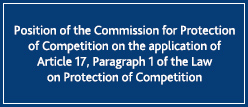
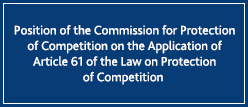
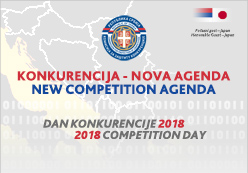
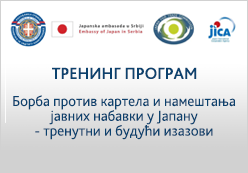
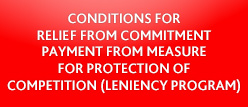

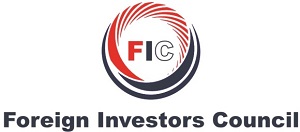 The Foreign Investors Council presented the White Book 2019, a publication published yearly that provides an overview of the business environment, in addition to recommendations for its improvement from the investors’ perspective.
The Foreign Investors Council presented the White Book 2019, a publication published yearly that provides an overview of the business environment, in addition to recommendations for its improvement from the investors’ perspective. In cooperation with the Italian partners under the Twinning project “Further Development of Protection of Competition in Serbia”, the Commission for Protection of Competition translated into Serbian the OECD Guidelines for Fighting Bid Rigging in Public Procurement.
In cooperation with the Italian partners under the Twinning project “Further Development of Protection of Competition in Serbia”, the Commission for Protection of Competition translated into Serbian the OECD Guidelines for Fighting Bid Rigging in Public Procurement.
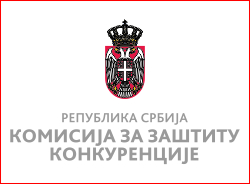 The Commission for Protection of Competition has established that companies Original doo Beograd, Mikops doo Niš, Birolinija doo Beograd, Biro Print Sistemi doo Beograd, Dikti Line doo, Birodeveloping doo Niš, Birotehnika doo, Jagodina, and Konica Minolta Poslovna Rešenja SE doo Beograd have coordinated their participation in public and other procurement procedures. In such manner, it is found that said companies have infringed competition law by entering into a prohibited restrictive agreement that directly or indirectly sets the selling prices or other conditions of trade, which has as its object the restriction and prevention of competition (Article 10(2/1) of the Law on Protection of Competition).
The Commission for Protection of Competition has established that companies Original doo Beograd, Mikops doo Niš, Birolinija doo Beograd, Biro Print Sistemi doo Beograd, Dikti Line doo, Birodeveloping doo Niš, Birotehnika doo, Jagodina, and Konica Minolta Poslovna Rešenja SE doo Beograd have coordinated their participation in public and other procurement procedures. In such manner, it is found that said companies have infringed competition law by entering into a prohibited restrictive agreement that directly or indirectly sets the selling prices or other conditions of trade, which has as its object the restriction and prevention of competition (Article 10(2/1) of the Law on Protection of Competition).